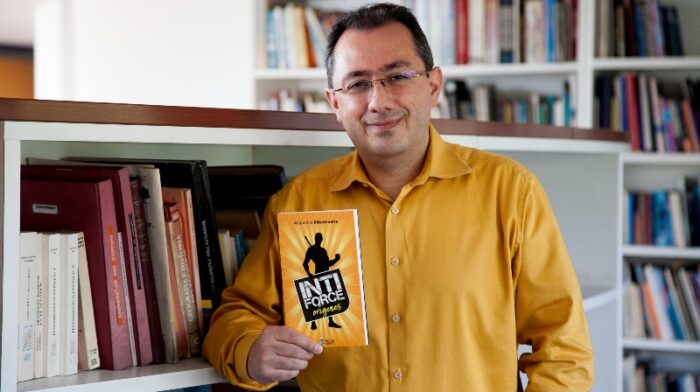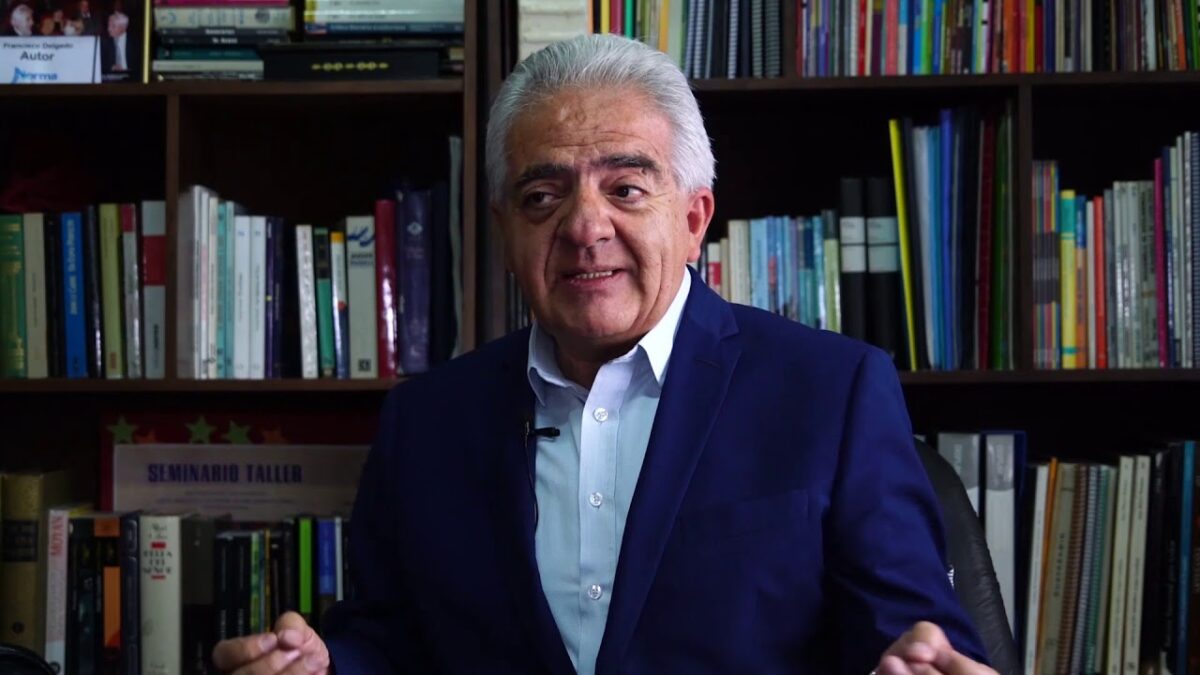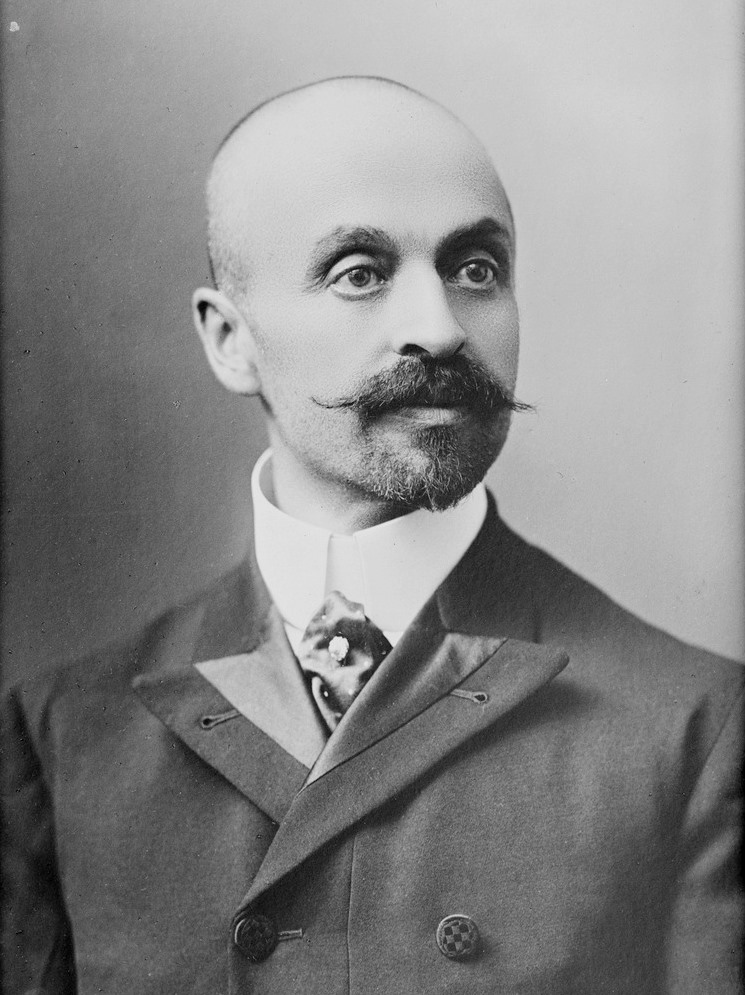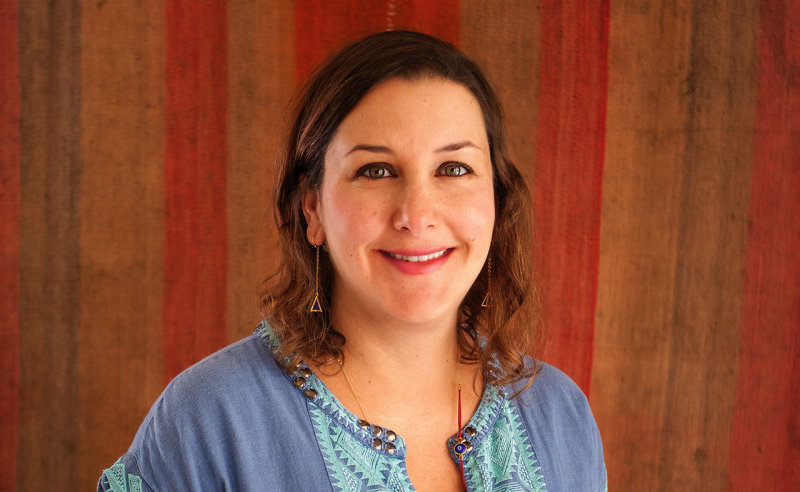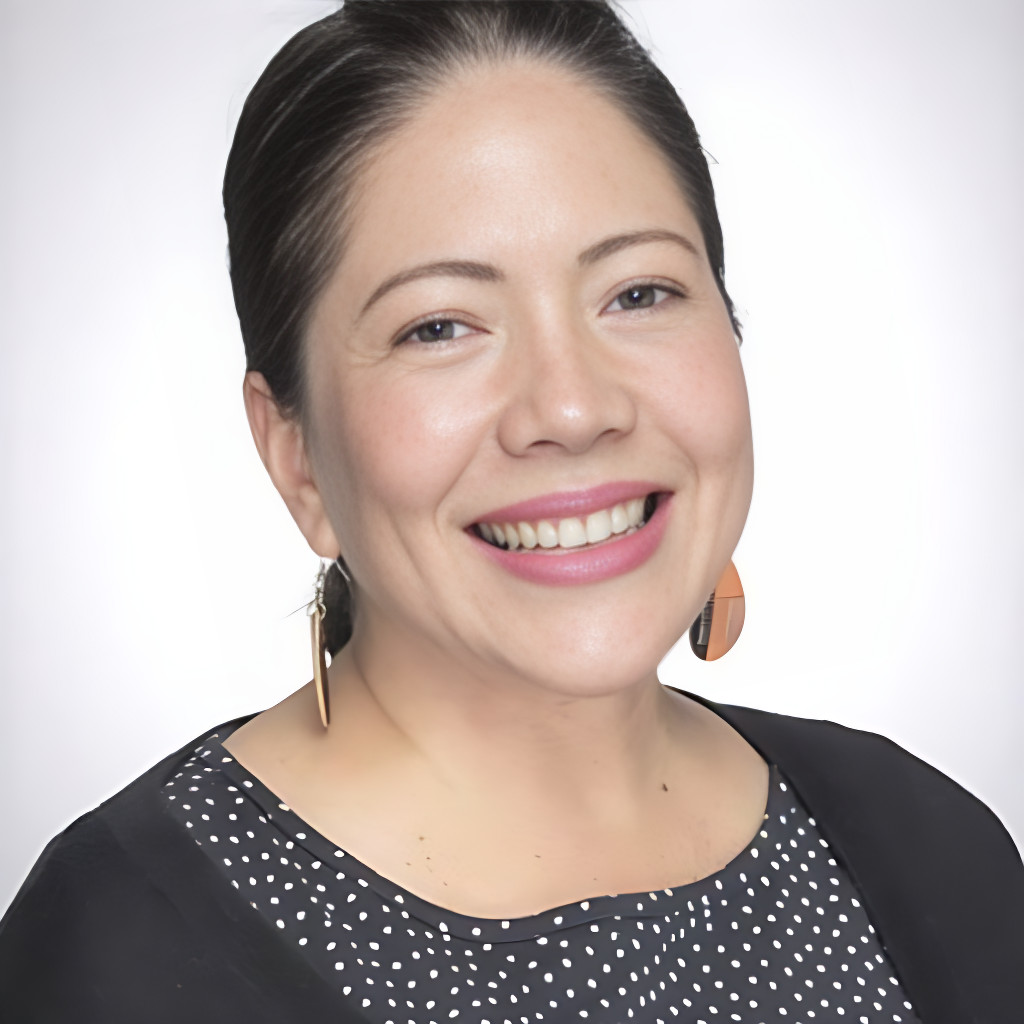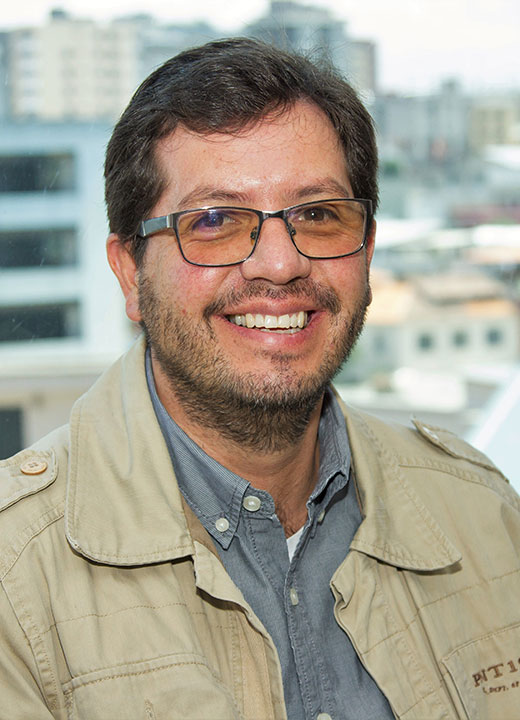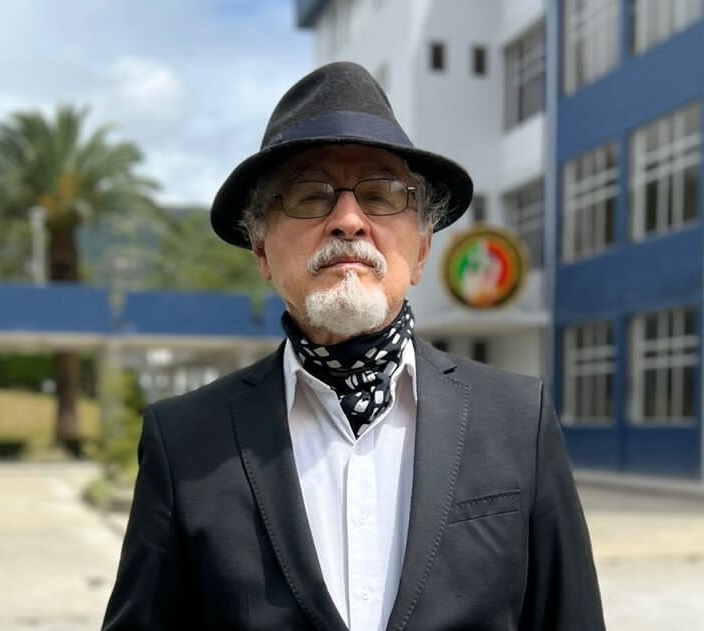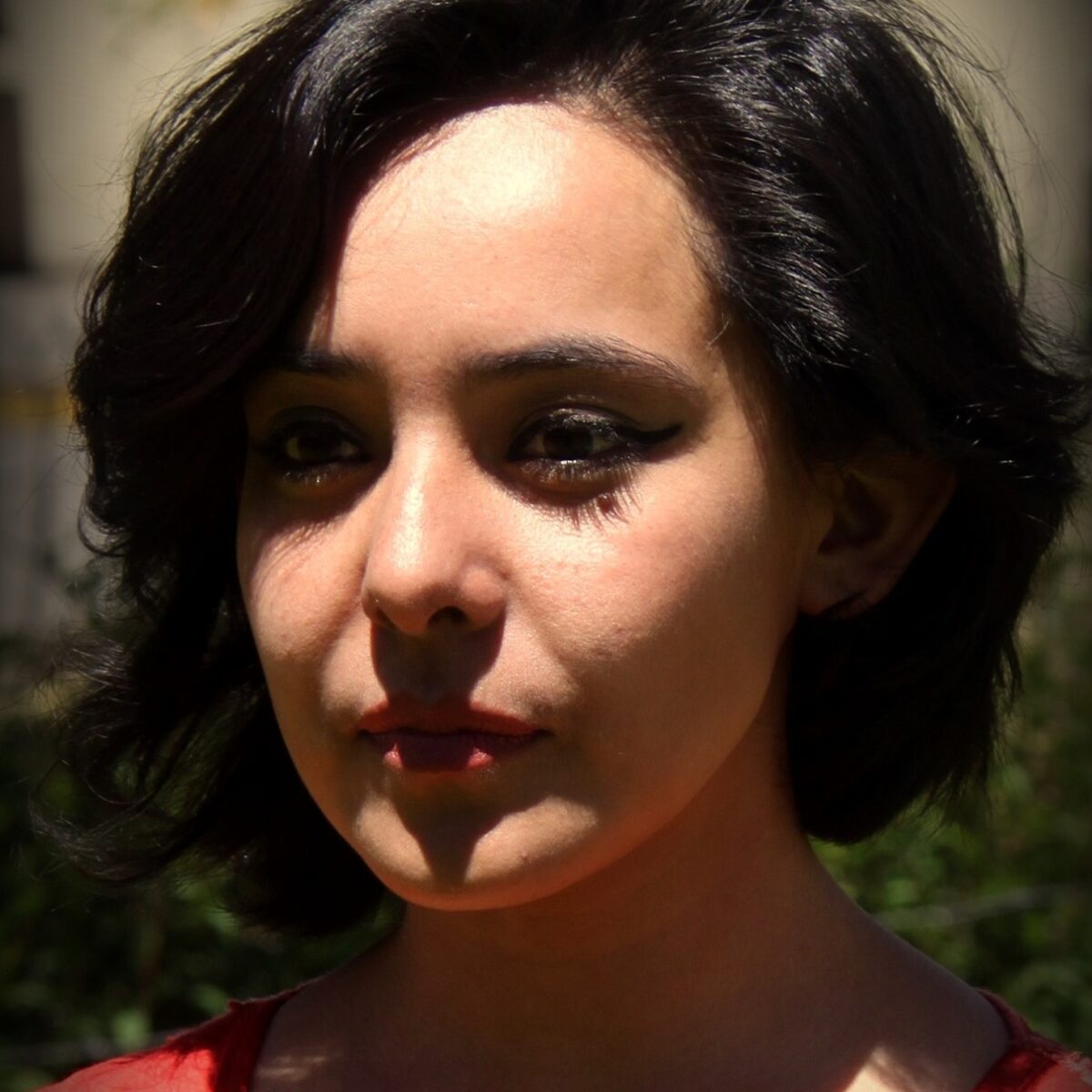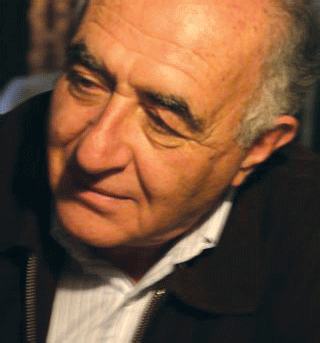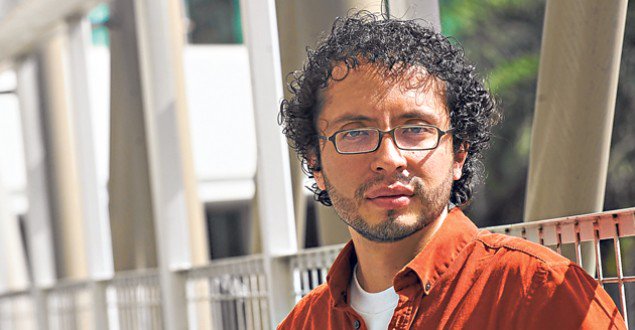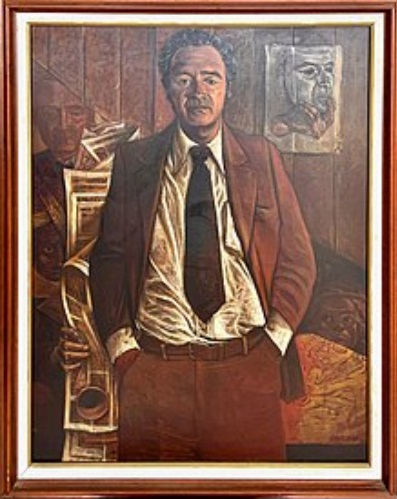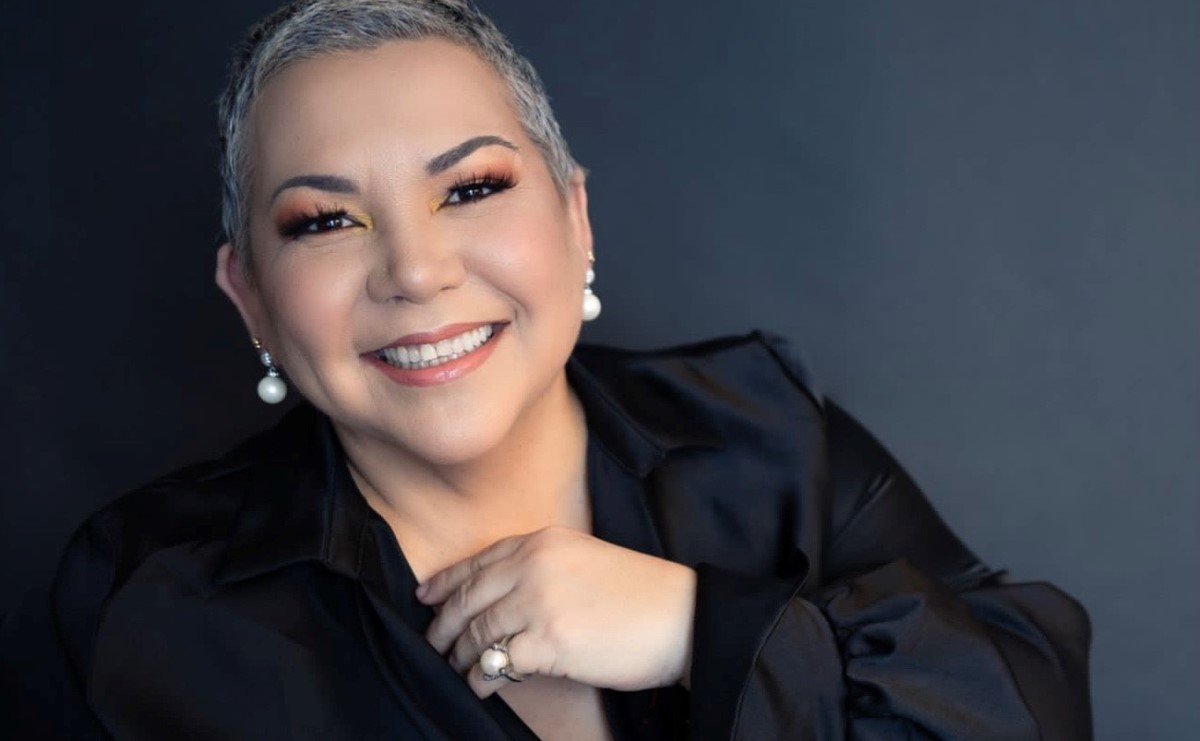Eulalia Barrera B., born Eulalia Beatriz Barrera Barrera (Quito, 1918 – Unknown) was an Ecuadorian writer and journalist who, along with her sister Inés, made a significant contribution to Ecuadorian literature. The Barrera sisters not only penned numerous “tradiciones” and short stories but also compiled important anthologies showcasing the works of other Ecuadorian writers. Notable among these are “Tradiciones y leyendas del Ecuador” (El Comercio, 1947) and “Los mejores cuentos ecuatorianos” (El Comercio, 1948). Eulalia Barrera’s distinctive approach to the “tradiciones” genre, integrating a gender analysis, set her work apart. Her stories, particularly “Flor de amor” and “La Capilla del Consuelo,” scrutinize the subordinate roles of women in society, shedding light on themes of oppression, loyalty, and solitude. Many of her works remain uncollected.
Continue reading “Eulalia Barrera B.”Category: Short story writers
Alejandro Ribadeneira
Alejandro Ribadeneira Tobar (Santiago, Chile, 1973) is an author, journalist, and editor born to an Ecuadorian father and a Chilean mother and has dual nationality. Since 2000, he has been part of Grupo El Comercio in Ecuador, where he has served as a macro editor, tasked with planning and editing journalistic content in areas such as Culture, Entertainment, Sports, Environment, History, among others, for both digital and print media. Educated at the Central University of Ecuador with a degree in Social Communication, Ribadeneira has penned a poetry book, several volumes of short stories, and novels, including “La frutilla mecánica,” “La máscara del padre,” “Calendario sin abril,” and “Inti-Force: Orígenes.” For 25 years, he has been a dedicated commentator and writer on the subject of soccer. He lives in Quito, Ecuador.
Continue reading “Alejandro Ribadeneira”Francisco Delgado
Francisco Delgado Santos (Cuenca, June 9, 1950) is an Ecuadorian writer, poet, and editor. Delgado Santos has made a significant contribution to Ecuadorian literature for children and young people with his extensive collection of over 50 published titles. With a deep passion for reading and writing, Delgado Santos believes in the transformative power of books, especially in shaping the imaginations and intellectual development of young readers. His works span across various genres and have garnered recognition and prestigious awards. Beyond his literary achievements, Delgado Santos has played a pivotal role in establishing the National Library System of Ecuador, expanding access to books and fostering a culture of reading throughout the country.
Continue reading “Francisco Delgado”Honorato Vázquez Ochoa
Honorato Vázquez Ochoa (Cuenca, October 21, 1855 – January 26, 1933) was an Ecuadorian diplomat, lawyer, educator, painter, grammarian, writer, and poet considered one of the most prominent figures of Cuencan lyricism in the 19th century. Vázquez’s literary works spanned different genres, including poetry, essays, and historical accounts. Notable among his works is the poetry book “Los sábados de mayo,” co-written with Miguel Moreno, which exemplified the tendencies of national romanticism in Ecuador. Vázquez’s poems, such as “Morenica del Rosario,” demonstrated his sentimentality and mastery of language, including the use of archaic Spanish. Furthermore, his contributions to the field of linguistics were notable, with regular essays on the Spanish language, Quechua, neologisms, and other language-related topics. In 1886, at the age of 31, he delivered his induction speech to the Ecuadorian Academy of Language, making him one of the youngest members to ever join.
Continue reading “Honorato Vázquez Ochoa”Julia Rendón Abrahamson
Julia Rendón Abrahamson (Quito, 1978) is an Ecuadorian writer. She has authored the novel “Lengua ajena” (2022), which explores profound themes of identity and belonging. In addition to her novel, Rendón Abrahamson has released two collections of short stories, including “Yeguas y terneros” (2021) and “La casa está muy grande” (2015). Her remarkable talent has garnered recognition, including being awarded the Montserrat Roig Grant for Literary Creation in 2021 by the City Hall of Barcelona, as part of UNESCO’s City of Literature program. Rendón Abrahamson’s educational background is just as impressive, with degrees from renowned institutions such as Boston College, Parsons School of Design, the National University of the Arts in Argentina, and the Argentine institute Casa de Letras. She also teaches creative writing workshops and founded Espacio Cultural PezPlátano in Quito.
Continue reading “Julia Rendón Abrahamson”Melanie Márquez Adams
Melanie Márquez Adams (Guayaquil, May 5, 1976) is an Ecuadorian American writer, editor, and translator. Among her published books are “Mariposas negras” (2017), a collection of stories, and “Querencia” (2020), an exploration of identity and finding one’s sense of belonging in a foreign land. As an editor, Márquez Adams has curated anthologies such as “Del sur al norte: Narrativa y poesía de autores andinos” (2016), which showcases the narratives and poetry of Andean authors, and “Ellas cuentan: Antología de Crime Fiction por latinoamericanas en EEUU” (2019), highlighting the crime fiction works by Latin American women in the United States. Márquez Adams has received accolades such as the Latino Book Award for her exceptional work as an editor. Her latest work, “Imaginar países” (2021), was a finalist for the 2022 Premio Paz de Poesía (Paz Poetry Prize).
Continue reading “Melanie Márquez Adams”Elisa Ayala González
Elisa Ayala González (Guayaquil, 1879) is considered the pioneer of short stories in the early decades of the 20th century in Ecuador. She grew up on a hacienda in the province of Los Ríos, where her father, Arcadio Ayala, a doctor, fostered her love for literature through his extensive library. Her writings were published in various Spanish, Uruguayan, Chilean, Argentinean, and Cuban magazines and newspapers. Her first short story, “La maldición,” was published in one of the international magazines to which her father subscribed. Ayala González’s works can be found in various anthologies, such as the “Antología de narradoras ecuatorianas,” by Miguel Donoso Pareja, and the “Antología básica del cuento ecuatoriano,” by Eugenia Viteri.
Pablo Escandón Montenegro
Pablo Escandón Montenegro (May 30, 1974) is an Ecuadorian fiction writer and social communicator with a PhD in Communication and Contemporary Information from the University of Santiago de Compostela, Spain. His research focuses on topics such as heritage, museums, memory recovery, and digital literature. He has served as a professor for both undergraduate and postgraduate programs at various universities in Ecuador, and is the director of Arsquitensis. Currently, he works as a full-time professor in the Communication area at Simón Bolívar Andean University in Ecuador.
Continue reading “Pablo Escandón Montenegro”Carlos Carrión
Carlos Alfonso Carrión Figueroa (Malacatos, Loja, January 25, 1944) is an Ecuadorian novelist and short story writer. He has won several prestigious literary awards, including the José de la Cuadra Award for his 1982 short story collection “El más hermoso animal nocturno” [The Most Beautiful Nocturnal Animal], the Joaquín Gallegos Lara Award twice, first for his 1995 short story book “El corazón es un animal en celo” [The Heart is an Animal in Heat] and later for his 2005 novel “¿Quién me ayuda a matar a mi mujer?” [Who’ll Help Me Kill My Wife?], which also earned him the “Lira y la Pluma” Award. Additionally, his work has been featured in various anthologies. In 2013, he won the Miguel Riofrío Award for his novel “La mantis religiosa” [The Praying Mantis]. Recently, in 2022, Carrión was honored with the Eugenio Espejo National Prize, the highest literary recognition in Ecuador.
Continue reading “Carlos Carrión”Katerine Ortega
Katerine Ortega (Quito, 1986) is an Ecuadorian poet, short story writer, and audiovisual communicator. Her works include: “Somos fuego” (2012), (a compilation of poems by various poets), “Naranja entera” (micropoems), La promesa” (videopoems), and she also contributed to the books “Ciencia y simbólica andina ecuatorial” and “Loma Grande: Memoria Histórica y Cultural” (section on mythology). Her stories and poetry have appeared in literary magazines such as Sapo (Chile) and Matapalo (Ecuador), as well as the anthology “Amor y soledad” (Spain). She was part of the literary workshops of the Benjamín Carrión House of Ecuadorian Culture, the Ecuadorian Society of Writers, Kafka Escuela de Escritores, among others. In 2020, she released “Tarasca,” her first collection of short stories.
Continue reading “Katerine Ortega”Modesto Ponce Maldonado
Modesto Ponce Maldonado (Quito, 1938) is an Ecuadorian novelist, short story writer, and businessman. He began writing fiction in his later years. At the age of 60, he published his first collection of short stories, “También las arcillas” (1997), which was followed by a novel, “El palacio del diablo” [The Devil’s Palace] (2005), which won the Joaquín Gallegos Lara Prize for best novel of the year. The novel’s title was taken from the name of a brothel that formerly stood in colonial Quito’s La Ronda neighborhood. Using the pen name Sergio Lozada, his second novel, “La casa del desván,” was shortlisted for the prestigious Premio Iberoamericano Planeta-Casa de América de Narrativa award. The novel, released by Editorial Planeta in 2008, is a first-person account of a schizophrenic man’s thoughts while he is institutionalized for his condition. In 2017, his novel “Adela” received honorable mention at the La Linares Short Novel Award. Ponce has also contributed to various literary magazines, including El Búho, Eskeletra, Kipus and Letras del Ecuador.
Continue reading “Modesto Ponce Maldonado”Wladimir Chávez
Wladimir Alfredo Chávez Vaca (Quito, 1977) is an Ecuadorian novelist, short story writer, and academic. He has lived in Norway for over two decades and currently serves as an associate professor of Spanish and Latin American literature at Østfold University College. Chávez’s literary work, which often explores themes of migration, identity, and exile, has garnered significant recognition. His short story collection En el corazón del silencio [In the Heart of Silence] won the Biennial Pichincha Prize in 2014, and his novel El olor de las flores quemadas [The Smell of Burning Flowers] was awarded the Miguel Riofrío National Literary Award in 2018. Some of his works have been translated into English and Italian.
Continue reading “Wladimir Chávez”Carlos Villasís Endara
Carlos Alfonso Villasís Endara (Bahía de Caráquez, November 17, 1930 – Quito, January 27, 2023) was an Ecuadorian writer, poet, playwright, and renowned art critic. He was the founder of the literary group “Galaxia,” member of the “Caminos” group, vice president of the Cotopaxi chapter of the House of Ecuadorian Culture, member of the Legal-Literary Society, and an honorary member of the Association of Plastic Artists of Ecuador. He was known by his family and friends as “Carlucho.”
Continue reading “Carlos Villasís Endara”Jorge Vargas Chavarría
Jorge Vargas Chavarría (Guayaquil, 1992) is an Ecuadorian writer, teacher, and chemical engineer. He has authored three short story collections, “Aquí empieza lo extraño” (2016), “Las cosas que no decimos” (2018), and “Una boca sin dientes” (2022), which won the Joaquín Gallegos Lara Prize.
Continue reading “Jorge Vargas Chavarría”Margarita Dager-Uscocovich
Margarita Dager-Uscocovich (Guayaquil, October 31, 1967) is an Ecuadorian fiction writer, poet, and columnist. Her debut novel, “No es tiempo de morir” was published in Spanish in 2018 and in English in 2019. Her second novel “Las queremos vivas” (2021), deals with the global trafficking of women, and has Guayaquil and Charlotte, N.C as settings. Her short stories and micro-stories have been published in Spain, Mexico, Argentina, Uruguay and the United States. Her poems have been published in the online magazine labelmelatina.com. She is a columnist for the Destinos section of the online magazine La Nota Latina in Miami, FL and Revista Latina NC. She currently resides in Charlotte, North Carolina.
Continue reading “Margarita Dager-Uscocovich”
